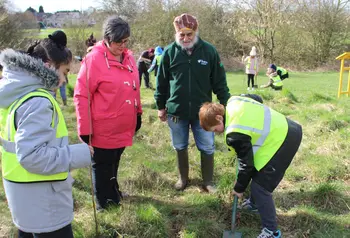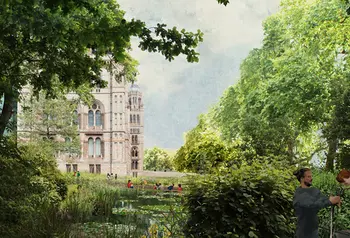How our projects are championing environmental sustainability

Our natural world is under threat, and it is everyone’s responsibility to try to protect it – including the heritage sector. We’ve already witnessed the effects of climate change on some of our much-loved heritage in the UK.
This is why we ask all projects we fund to consider how they can do their bit to combat climate change. By making adjustments in project planning and delivery – no matter how big or small – heritage organisations can have a positive impact on the environment.
We’ve gathered some of the best examples of innovative environmental sustainability practices to demonstrate how heritage projects can make a real difference.
Rectory Lane Cemetery
The Friends of St Peter’s were awarded £981,200 in 2017 for their cemetery restoration project through the Parks for People programme. This project aimed to transform the neglected Berkhamsted cemetery from a “dead space” to a living place – a space the whole community could use and enjoy.
The grantees created a wildlife corridor which boosted local wildlife. They also reduced their energy usage, used local sustainable suppliers and promoted sustainable practices to their visitors.

Transport for Wales
Following a grant of £100,000, Transport for Wales will be transforming up to 22 train stations across Wales in a bid to boost biodiversity.
The funding from the Local Places for Nature programme will support the installation of beehives, birdhouses, bat boxes and many other homes for wildlife at many of the country’s train stations. Many will also feature green roofs, water butts and planters, along with newly planted trees.

Museum of Making
The Museum of Making received £10.6million to renovate a 1721 silk mill in Derby. The museum ensured they considered environmental sustainability throughout every stage of this large-scale project.
Some of the changes included sustainable temperature regulation of the building and installing energy-efficient lighting. They also reduced demolition of existing buildings and recycled materials including 11,000 bricks, which were cleaned by volunteers and reused.
The museum installed nest boxes and bat boxes for local wildlife and encourage visitors to use sustainable transport.

Support sustainability
If you’re planning a new project for your heritage organisation, think about how you could consider environmental sustainability from the very beginning. We’ve pulled together useful information, tips and project examples to help you on your journey to sustainability.

